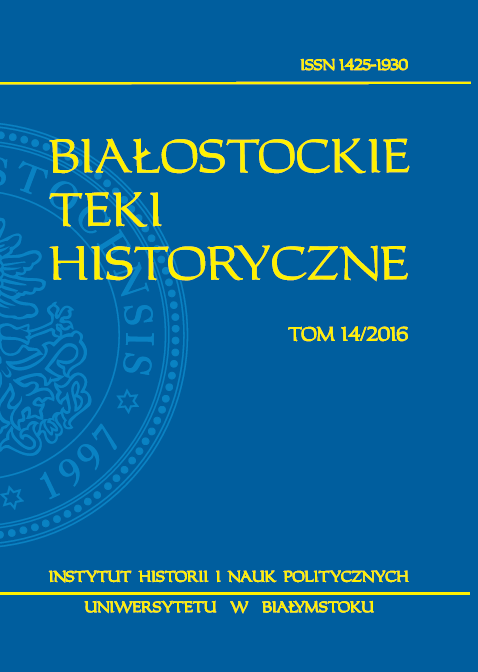Hiroszima w historii i pamięci Amerykanów
Hiroshima in the history and memory of Americans
Author(s): Halina ParafianowiczSubject(s): History, Social Sciences
Published by: Wydawnictwo Uniwersytetu w Białymstoku
Keywords: atomic bomb; memory of Hiroshima; Hiroshima Maidens; Harry Truman; Pearl Harbor
Summary/Abstract: Now for over 70 years people have been arguing about the reasons for dropping atomic bombs on Hiroshima and Nagasaki in August 1945. American researchers are still divided over the issue of the purpose, effect and consequences of their use as well as moral evaluation of this American action. The polarized discussion has to a great degree focused on the traditional interpretation, on the one hand, claiming it was indispensable to finish the war and minimalize American losses; on the other hand, stating that – with Japan almost defeated and ready for capitulation – it was unnecessary. With time, the issue of competition and confrontation with the Russians was raised, questioning military considerations used for decades by the subsequent governmental circles. In historical literature one may also frequently come across indications of prejudice towards the Japanese and the need to avenge Pearl Harbor. According to the polls conducted in 1945, the majority of Americans (85%) approved of President Harry Truman’s decision and the use of atomic weapons against Japan. With time and the disclosure of the data concerning the effects of the use of this devastating weapon against civilians, and in particular, the effects and diseases caused by the radiation, a part of American society began to have their moral concerns. Thus, their approval kept falling with time: from 85% in 1945 to 72% in 1965, to 65% in 1988, to 53% in 1990. Album publications, movies, autobiographies, memoirs and interviews with the witnesses of those events, monuments, sculptures, musical pieces, paintings as well as numerous historical and popular works, and the omnipresent Internet have brought into the public circulation broader knowledge concerning the reasons and circumstances of dropping atomic bombs on the Japanese cities in August 1945. They enabled the subsequent American and Japanese generations to have deeper reflections on these painful and controversial events.
Journal: Białostockie Teki Historyczne
- Issue Year: 2016
- Issue No: 14
- Page Range: 183-204
- Page Count: 22
- Language: Polish

